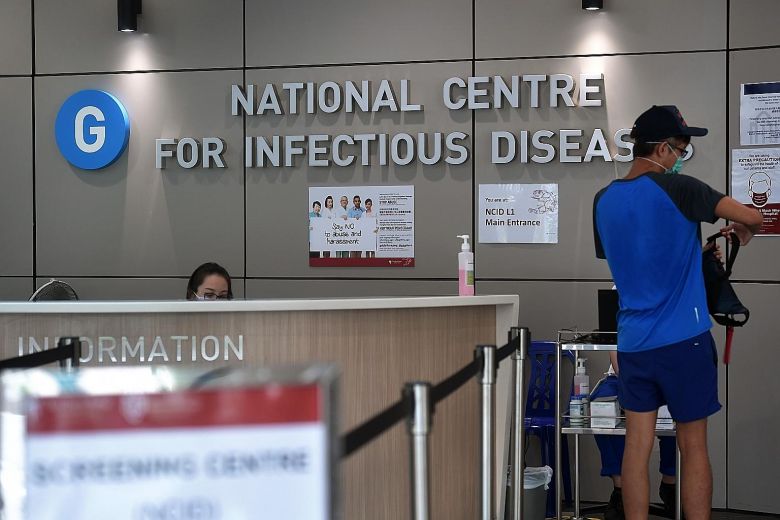HealthXchange will NEVER ask you to transfer money over a call. If in doubt, call the 24/7 ScamShield helpline at 1799, or visit the ScamShield website at www.scamshield.gov.sg.

The study, a collaboration between the National Centre for Infectious Diseases and Duke-NUS Medical School, shows that Singapore's coronavirus contact tracing efforts have been effective, with those likely to be infected successfully identified for isolation.ST PHOTO: KUA CHEE SIONG
Local transmission of the coronavirus in the community has been low, at least up until the middle of last month, researchers from the Covid-19 research group at the National Centre for Infectious Diseases (NCID) have found.
This shows Singapore's contact tracing efforts have been effective, with those likely to be infected successfully identified for isolation, according to a study by the centre.
However, this also means immunity rates here are low and much of Singapore's population remains susceptible to the virus, NCID executive director Leo Yee Sin told reporters yesterday.
The ongoing study, a collaboration between NCID and Duke-NUS Medical School, aimed to measure how widespread Covid-19 is in the community in Singapore.
Researchers tested blood samples from 268 children aged 16 and below, and 506 adults of all ages.
The samples, contributed by National University Polyclinics, National University Hospital and KK Women's and Children's Hospital, were taken from anonymous patients who had their blood drawn as part of their routine care.
They were grouped by age to test if adults are more likely to carry antibodies indicating a past infection compared with children.
One concern the study attempted to address is that some infected individuals - especially children - have only mild symptoms or even no symptoms.
Surveillance systems could potentially miss children who do not show any symptoms, NCID said.
But the study found that none of the subjects had antibody levels that indicated a Covid-19 infection.
Dr Mark Chen, who heads NCID's research office, said this showed a "very low" proportion of the community was infected as of mid-March, and community transmission of the virus was not widespread.
More tests are planned for early next month, and the researchers hope to gather more samples from children, Dr Chen said.
He added that they plan to continue the studies on a regular basis, about once a month, to monitor the status of the epidemic in Singapore.
Dr Chen also said that when a vaccine becomes available in future, the tests could help determine if and when vaccination has resulted in sufficient levels of immunity in the community to prevent future outbreaks.
Get the Health Buddy App
© 2025 SingHealth Group. All Rights Reserved.













 Get it on Google Play
Get it on Google Play